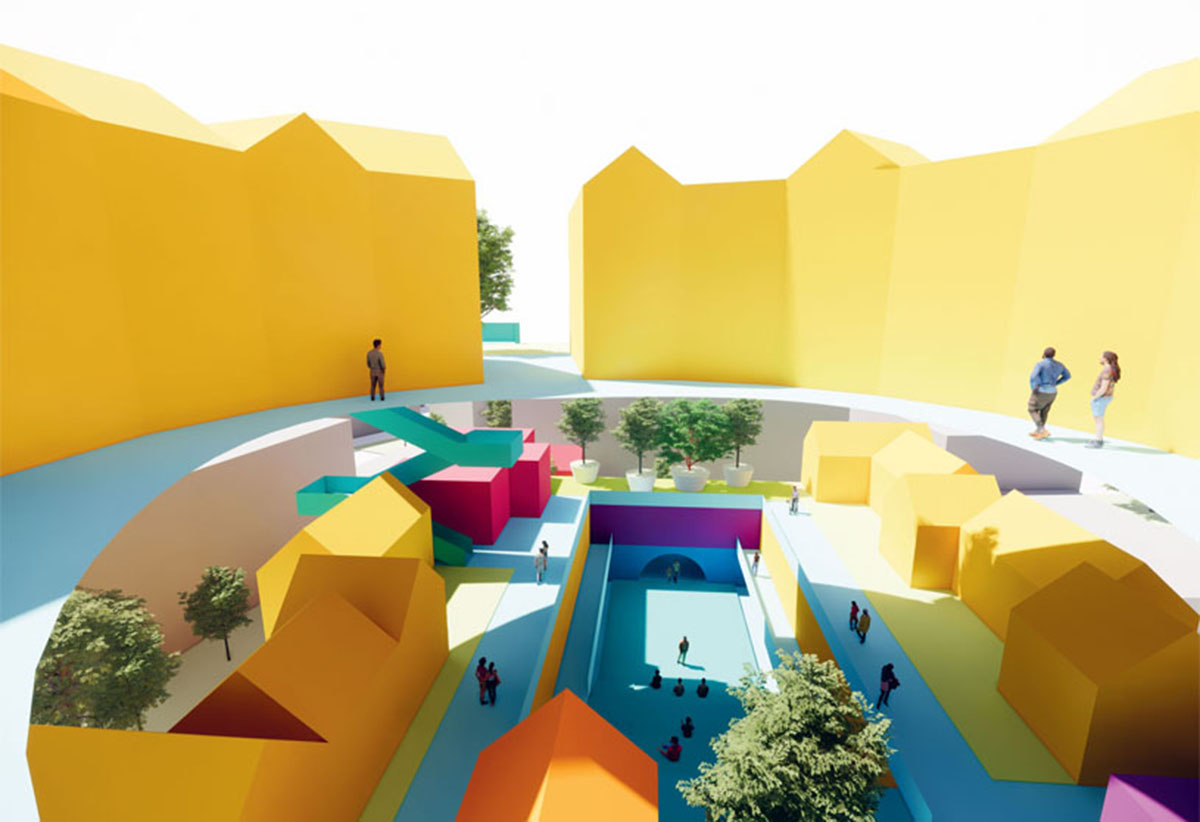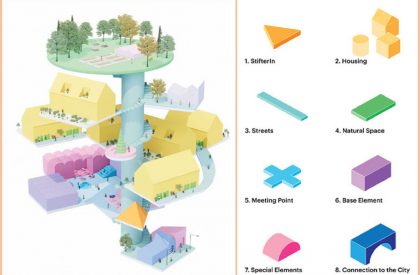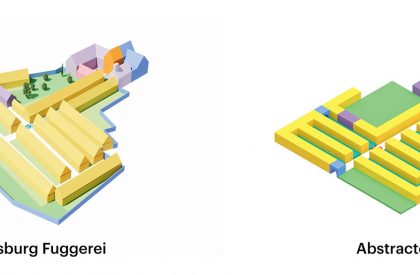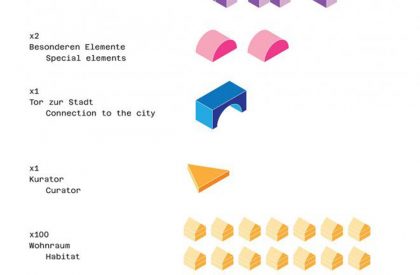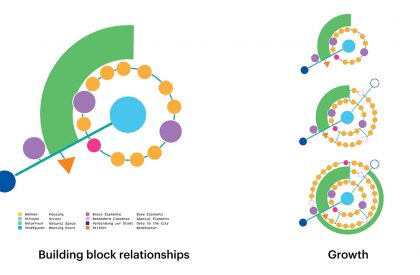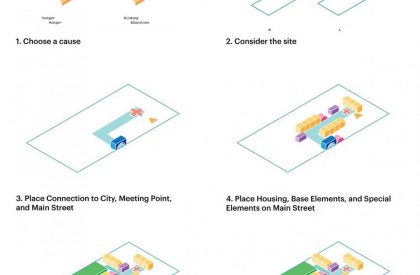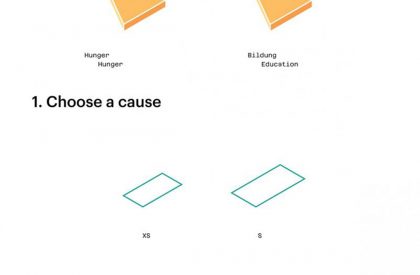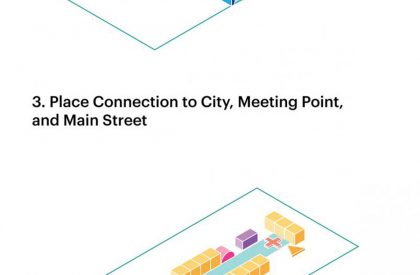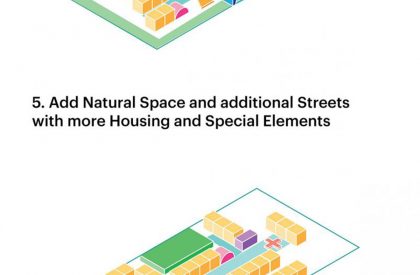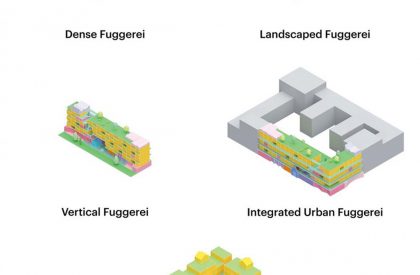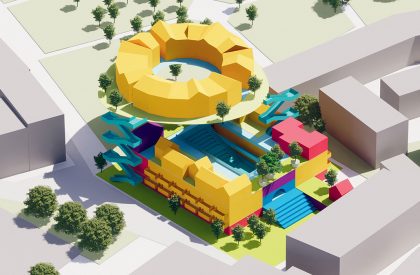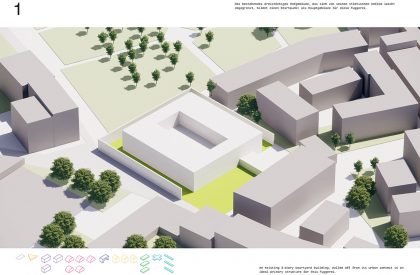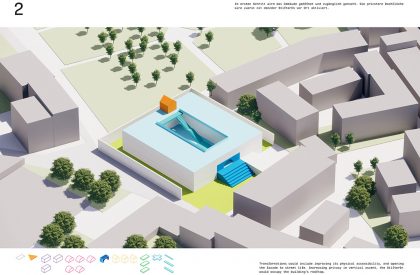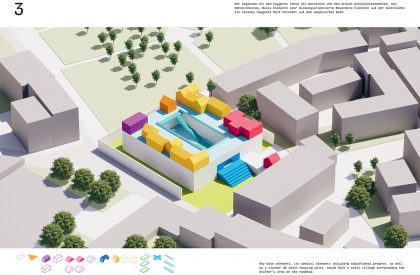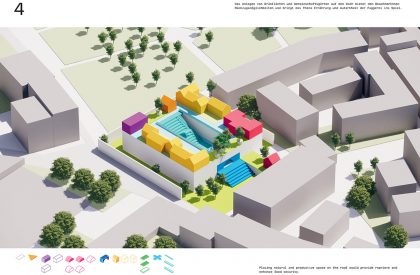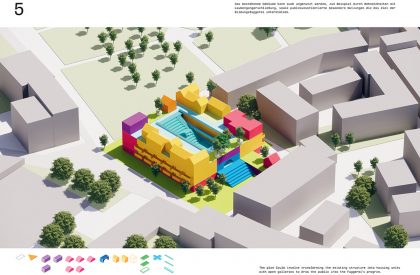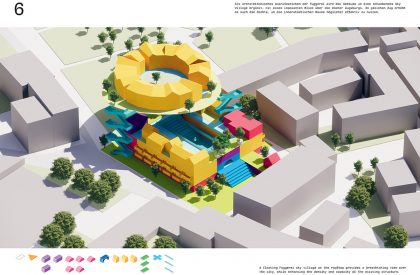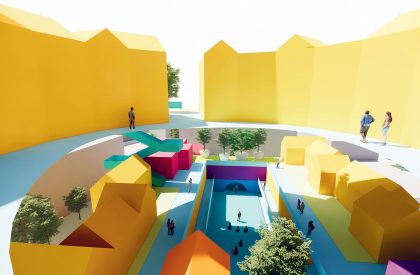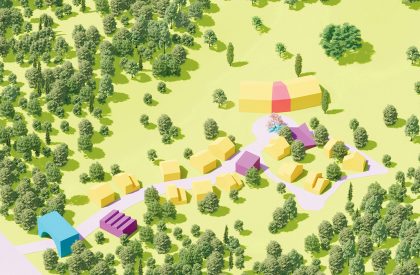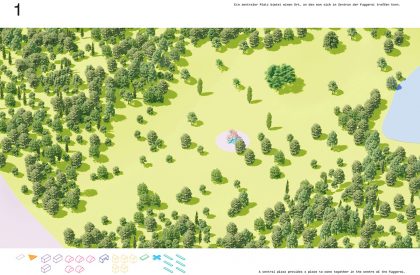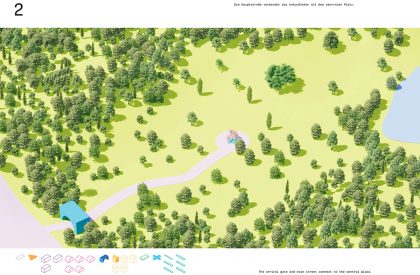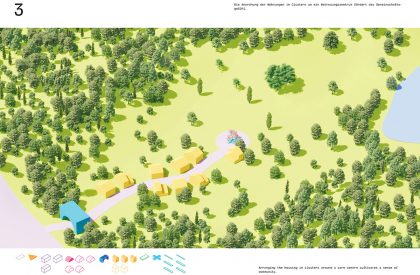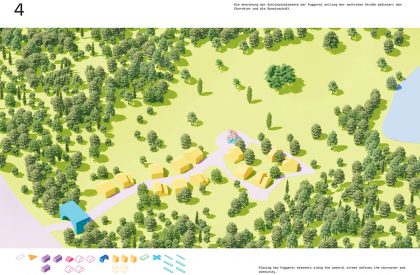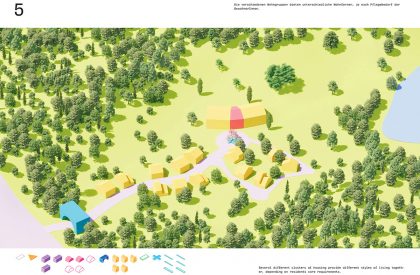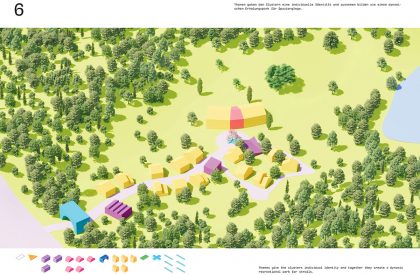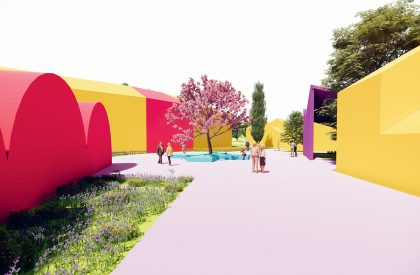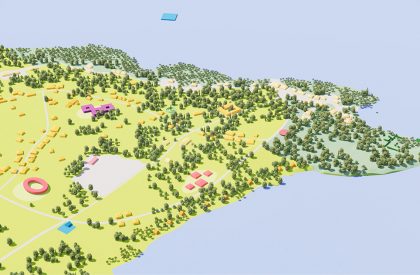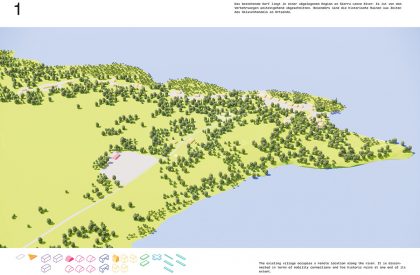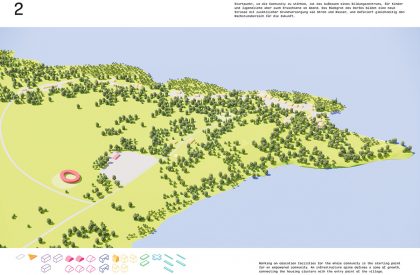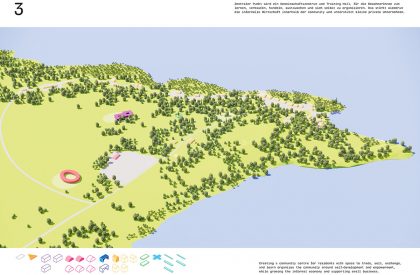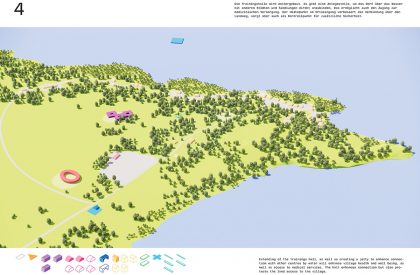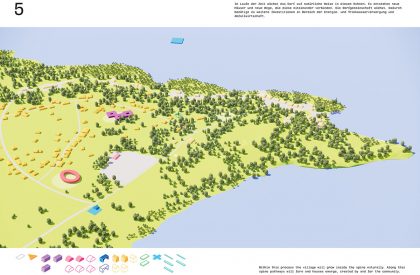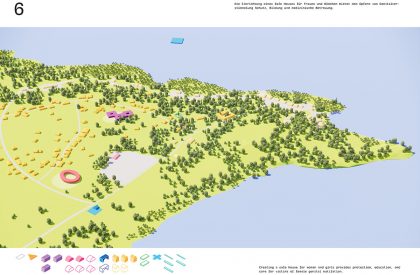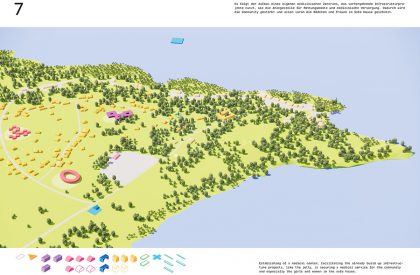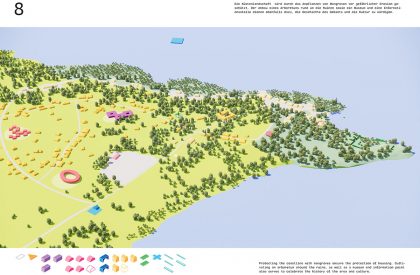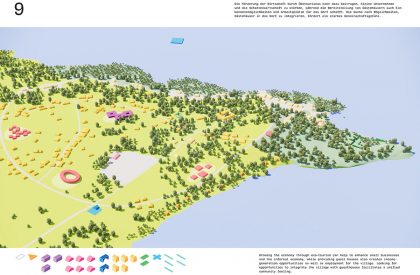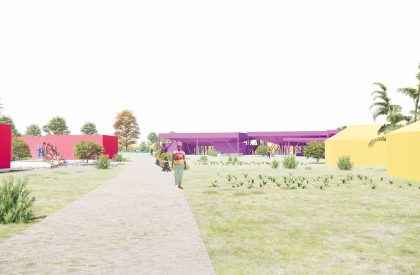Excerpt: Fuggerei of the Future is a public program developed by the architectural firm MVRDV that proposes building blocks that are climate responsive. In our current times of housing shortage, climate crisis, social inequality, and isolation, the sustainability-oriented and people-centred concept of the Fuggerei provides a global role model. It responds to the tremendous social and ecological questions of our time.
Project Description
[Text as submitted by the architects] To celebrate the 500th anniversary of the world’s oldest social housing complex, the Fuggerei in Augsburg, MVRDV partnered with the Fugger Foundations to develop a manual for the creation of new Fuggerei around the world, allowing the concept to adapt to new contexts while ensuring that they adhere to the values and principles of the original. The manual also included three studies for new Fuggerei in specific locations: one in Lithuania, one in Sierra Leone, and a second in Augsburg, focusing on education.

The brainchild of merchant Jakob Fugger, since 1521, the Fuggerei has provided a place for people to live with dignity, charging a constant, unchanging rent of just one guilder a year – or 0.88 euros in modern currency. In our current times of housing shortage, climate crisis, social inequality, and isolation, the sustainability-oriented and people-centred concept of the Fuggerei provides a global role model. It responds to the tremendous social and ecological questions of our time.


The study identified seven distinct issues that Fuggerei is capable of addressing. A fuggerei should address a specific social need (broadly describing any location-specific social challenge, ranging from poverty to education to gender discrimination); it should provide a haven for the people it serves and be sustainable. It should encourage humanistic values (500 years ago, Catholicism defined the original Fuggerei, but today this can refer to any standard value system that residents share); should enable self-determination and dignity for residents; should be a social home (supporting community and a rewarding personal life); it should provide for residents’ spiritual needs. These central tenets are enshrined in the newly-written Fuggerei Code, along with additional details requiring only a “minimal spiritual monetary and spiritual consideration from residents” and the expectation for the Fuggerei to maintain its mission in perpetuity.

The study defines an abstract set of components that make a Fuggerei successful in achieving these goals. These eight simple “building blocks” provide a system for new Fuggerei that can be adapted to different contexts worldwide. First is the founder, or “stifter”, who defines the local need addressed by the Fuggerei. The houses should have doors to the street and include a private green space such as a garden, roof terrace, or balcony; streets should be car-free, human-scale, and climate-responsive.

There should always be a natural space providing the opportunity for social gatherings; there should be a meeting point that forms the heart of the community. “Fuggerei elements”, such as contemplative spaces or repair workshops, provide permanent community functions based on the Fuggerei’s central need. “Special elements” provide more flexible spaces that can adapt to needs that change over time; finally, the gateway defines the Fuggerei’s relationship to its surroundings – simultaneously inviting people inside yet providing a sense of security for residents.



The study for Sierra Leone focuses on Rothumba, a remote fishing village. Identifying multiple needs that a Fuggerei could address, including healthcare and hygiene issues, the threat of rising sea levels, and the wellbeing of women and children, the founder’s goal is for community-driven, bottom-up development. The proposal improves the village’s existing housing and provides a safe house for women and children and spaces that provide education to end practices such as female genital mutilation. The proposal also includes guest houses and improvements to the village’s accessibility by road and boat to make better connections with the outside world.



In the study for a community in rural Lithuania, this system resulted in a plan for a Fuggerei focussed on elderly poverty and a crisis in social care due to an ageing population. Set in a forest that provides the necessary natural spaces, the plan includes a care facility with 40 rooms, facilities for education in social care for the community’s younger residents, and “special elements” that provide physical therapy spaces and community activity spaces.


Finally, in Augsburg, the study’s formula manifests as a more dense urban development. The proposal distinguishes itself from the original Augsburg Fuggerei by focusing on a different need: education and the city’s potential to capitalise on the knowledge economy. The proposal is envisioned as a younger community on average, with shorter tenancy periods than in the other studies. Using modular construction techniques, this Fuggerei would adapt an existing building, and the Fuggerei’s “streets” are interpreted as a stackable elements, with entries on multiple levels.

